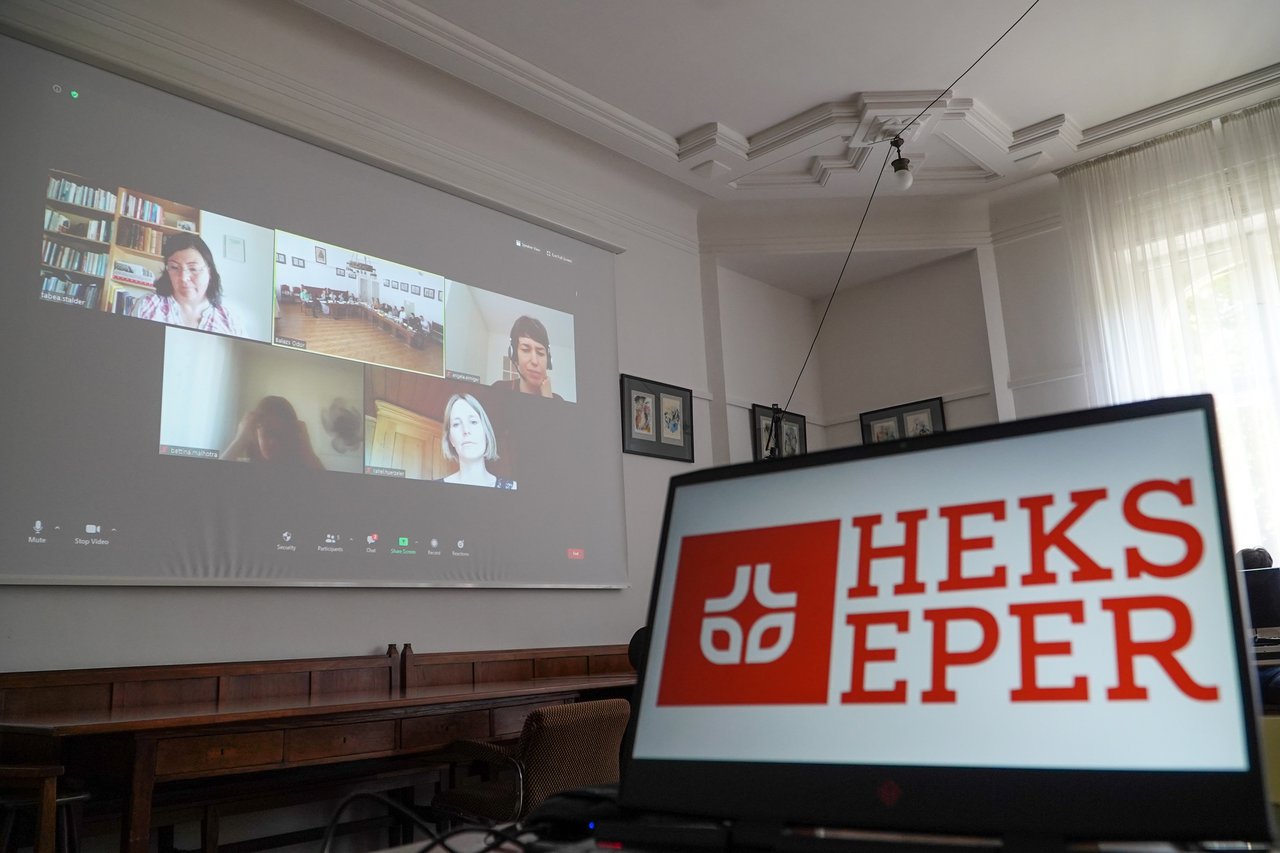
The historic partnership between Swiss Interchurch Aid (HEKS) and the Reformed Church in Hungary (RCH) continues as members of both organizations gathered for an online workshop to discuss their ongoing partnership work in the region. The meeting focused on the wildly successful Country Program (CP) in Hungary and the future priorities for continuing it for the next four years.
On 1st July, representatives of the Reformed Church in Hungary, including responsible coordinators of HEKS projects in Hungary, as well as colleagues of the National Reformed Roma and the Refugee Integration Ministries, and representatives of the Diaconal Office, the Hungarian Reformed Church Aid, the Refugee integration implementing partner Kalunba Non-Profit, and the Ecumenical Office met among themselves physically, and were connected with representatives of the Swiss Protestant Church Aid (HEKS) via video conference. The objective of the workshop was to review the outgoing period of the Church Cooperation, based on an in-depth evaluation and audit of the Country Program focusing on social change in terms of integration of Roma and Refugees. Based on the outcomes of the written and oral evaluations, and on the discussions future plans for the upcoming period of 2021-2024 were also discussed. At the end of the meeting both partners committed themselves to continue their cooperation in the two mission fields, following criteria and strategic objectives to be defined and detailed in both project plans which HEKS and RCH are going to draft in the coming weeks. You can read a summary of the workshop, based on the report of the Communication Director of the National Roma Ministry of RCH, Attila Dezső.
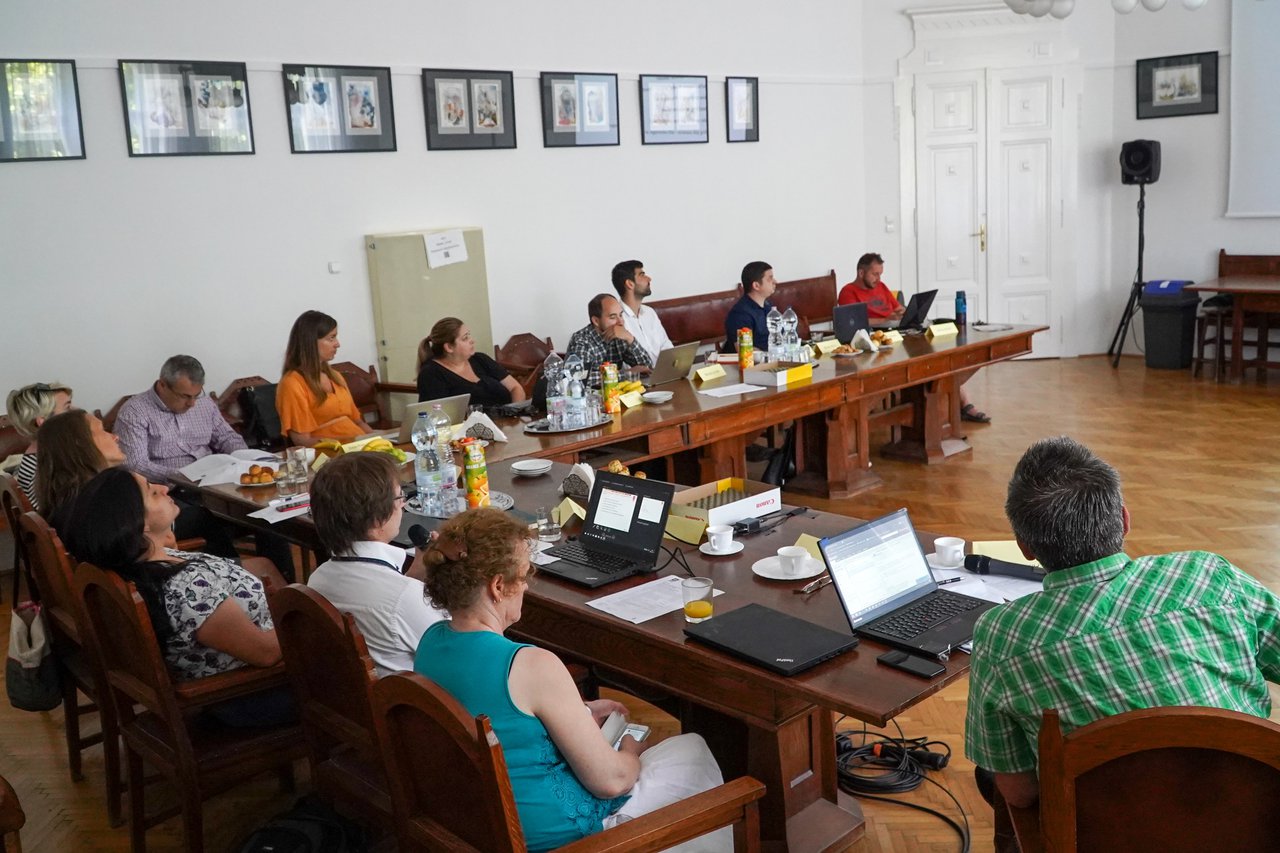
HEKS has been supporting RCH’s ministry to Roma families for more than seven years. In the first four-year period, congregations had the chance to apply for support for the establishment of aftrer-schools, baby and toddler clubs and playhouses for Roma kids. In the second period starting in 2017 a new pillar of the cooperation was established in the form of the inclusive school program.
The year 2020 is crucial in the cooperation between the National Reformed Roma Ministry and HEKS, as in addition to the evaluation of the results achieved in the last four years, we have the task to develop a program for the next four years. The workshop provided an opportunity for both. RCH’s Roma Ministry was represented by Eszter Dani, Head of Mission Department, Anita Tóth, head of the national office of Roma Ministry, and Andrea Ignácz and Dániel Ablonczy, HEKS project managers. The meeting was also attended by colleagues of the Ecumenical and Diaconal Office, the Hungarian Reformed Church Aid, the Refugee Ministry of RCH and the SIMPACT Nonprofit Ltd., responsible for the in-depth evaluation of the Roma inclusion projects.
HEKS was represented by Angela Elmiger, Desk Officer Eastern Europe, Rev. Tabea Stalder, Desk Officer Church Cooperation, Bettina Malhotra, Program Associate and Rahel Hürzeler, Conflict Transformation and Gender Advisor
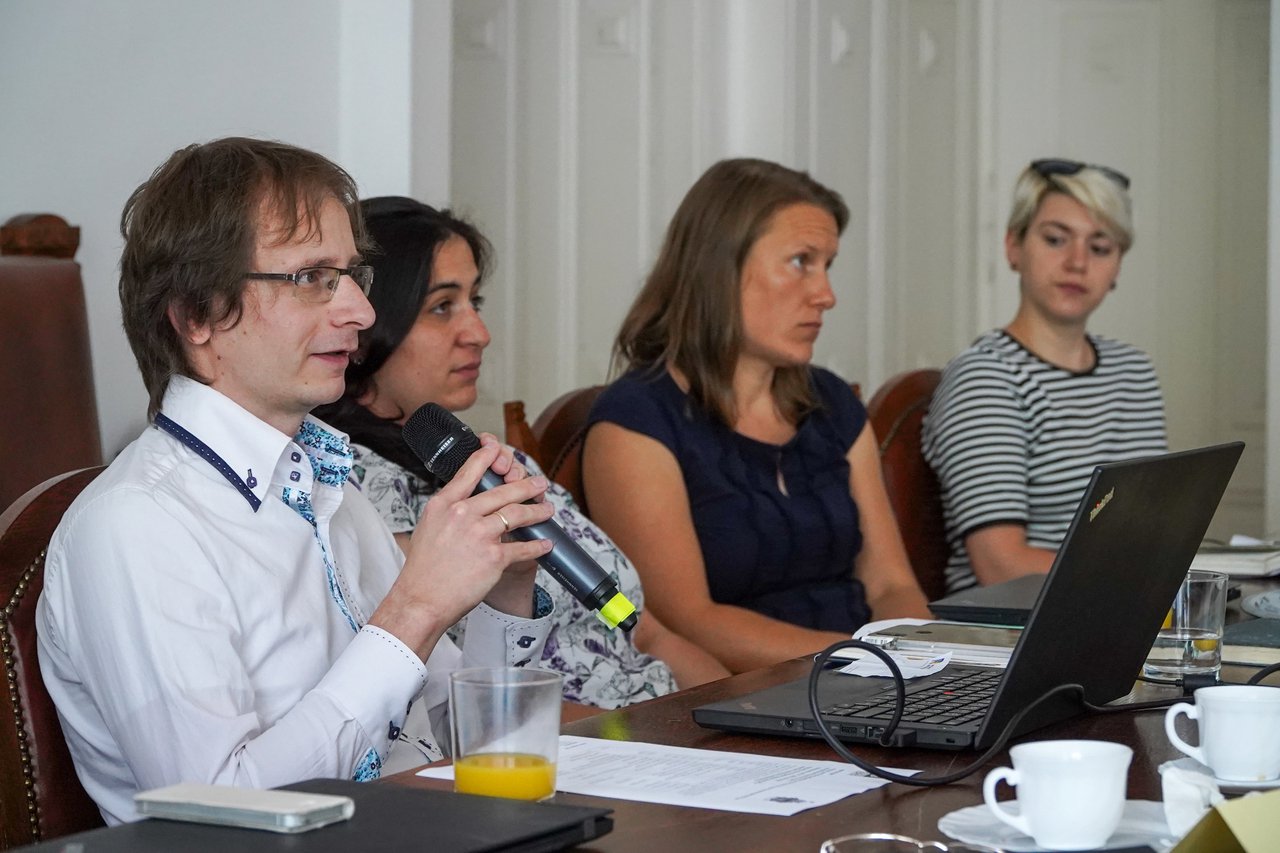
Following the biblical reflection by Eszter Dani, Angela Elmiger, HEKS Desk Officer for Eastern Europe, briefly summarized the work of the organization, including overall aims and current challenges. The institution provide support in 30 countries through cooperation with churches and NGOs, but the goal is the same everywhere: to create more equal, peaceful, and resilient societies. HEKS everywhere strives to bring about structural change, and it is also a priority to help local communities stand on their own feet and develop sustainable projects involving new partners and resources.
This is no different in Hungary either, where 13 congregations currently do some work in Roma communities across the country. Andrea Ignácz presented their activities, and Dániel Ablonczy spoke a few words about the inclusive school program.
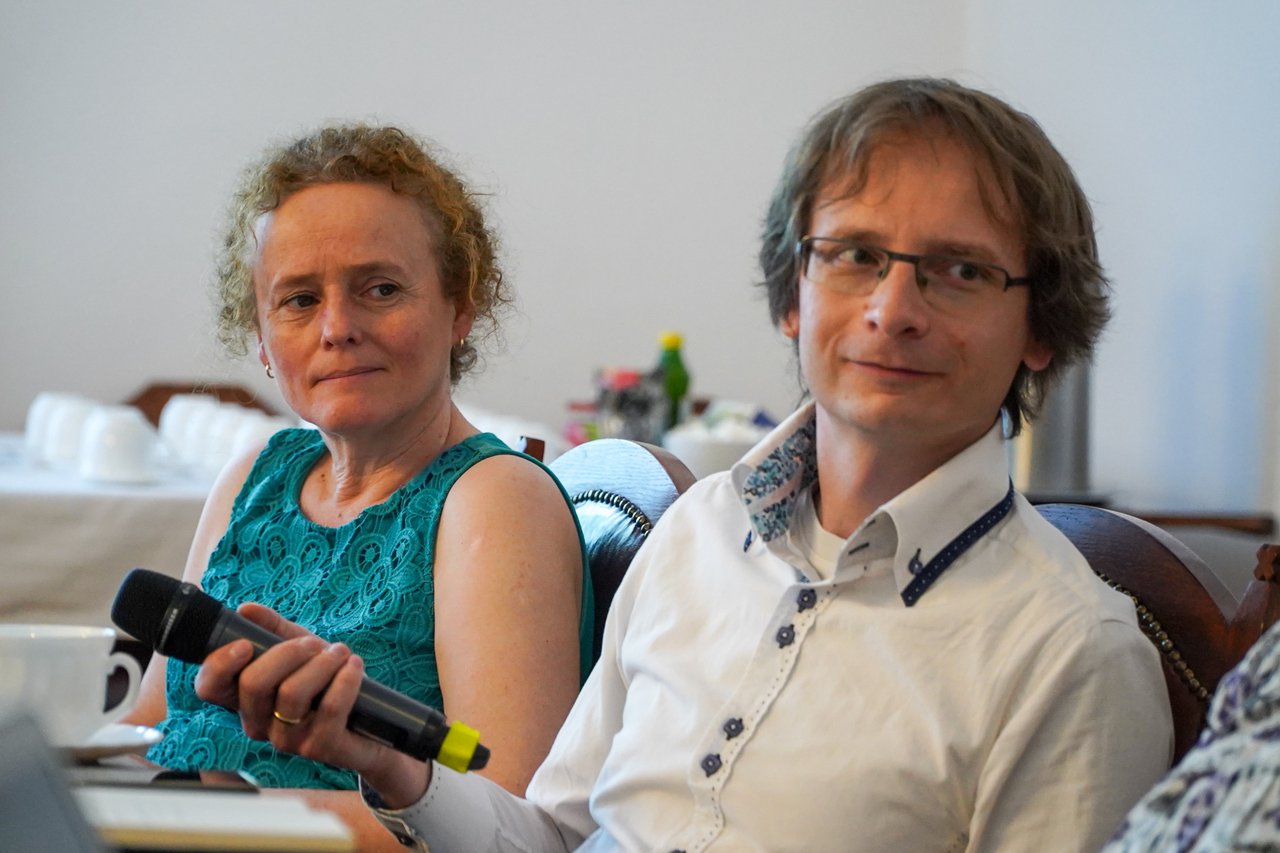
Following the these presentations Gábor Nagy, managing director of the SIMPACT Non-profit Ltd. took the floor. Simpact has been responsible for the professional evaluation of the Roma projects. It organized several consultations and played an active role in the narrative evaluation through interviews with colleagues working in the projects, both on local and national level. In seven weeks, Simpact provided an in-depth professional review, including in the analysis all 14 reformed congregations and 6 primary schools receiving HEKS support. During this time, staff members of Simpact offered five on site visits and conducted 64 interviews with local participants and 14 others with representative of cooperating organizations and institutions, affiliated to RCH.
Four Criteria
Relevance
Gábor Nagy's presentation showed that the projects are in line with national and regional strategies, support children from birth and are much more visible than in 2016. Thanks to the inclusive school project, tensions within the institution have been reduced and communication between teachers, children and their parents has improved a lot since the start of the program.
Results
In this regard, the study covered three main areas (after-schools, schools, and congregational inclusion): after-schools could be tools for change in the quality of relationships, children’s behavior, academic achievement, and their sustainability. But there were also barriers to change, such as capacity problems, lack of high school support and parental support.
The schools, on the other hand, have been successful in children’s personal development and progress: improving grades, an easier transition to digital education, strengthening relationships with parents are convincing outcomes reflecting the success of the projects. However, there is room for improvement here as well: deepening the relationship with parents, developing the reformed spirituality of the staff, involving volunteers, and reaching even more children.
Congregational inclusion has been less successful, as some of the adults associated with the communities attend events organized by local churches only on an occasional basis — however, a separate program (Bible lessons, Alpha course, Together for each other) has produced temporary results.
Efficiency
Although the leaders of the local HEKS projects were in continued contact with the staff of the National Reformed Roma Mission, programs proved to be independent and “self-operatating”. Schools have recognized that inclusion is not limited to Roma, which can increase future engagement. An important aspect for the those actually implementing the program was the fact that the administration of HEKS projects represents less burden and stress than that of state- or EU-funded programs, In addition, especially during the coronavirus epidemic that brought substantial changes in the daily work, the Swiss partner proved to be particularly flexible.
Sustainability
As Angela Elmiger has indicated in her introduction, the aim of HEKS is to help the supported initiatives become self-sustaining with time: there are signs of this in some places, less so in others - in the case of the latter, the involvement of new partners and donors, or stronger church involvement and ownership could be of great progress.
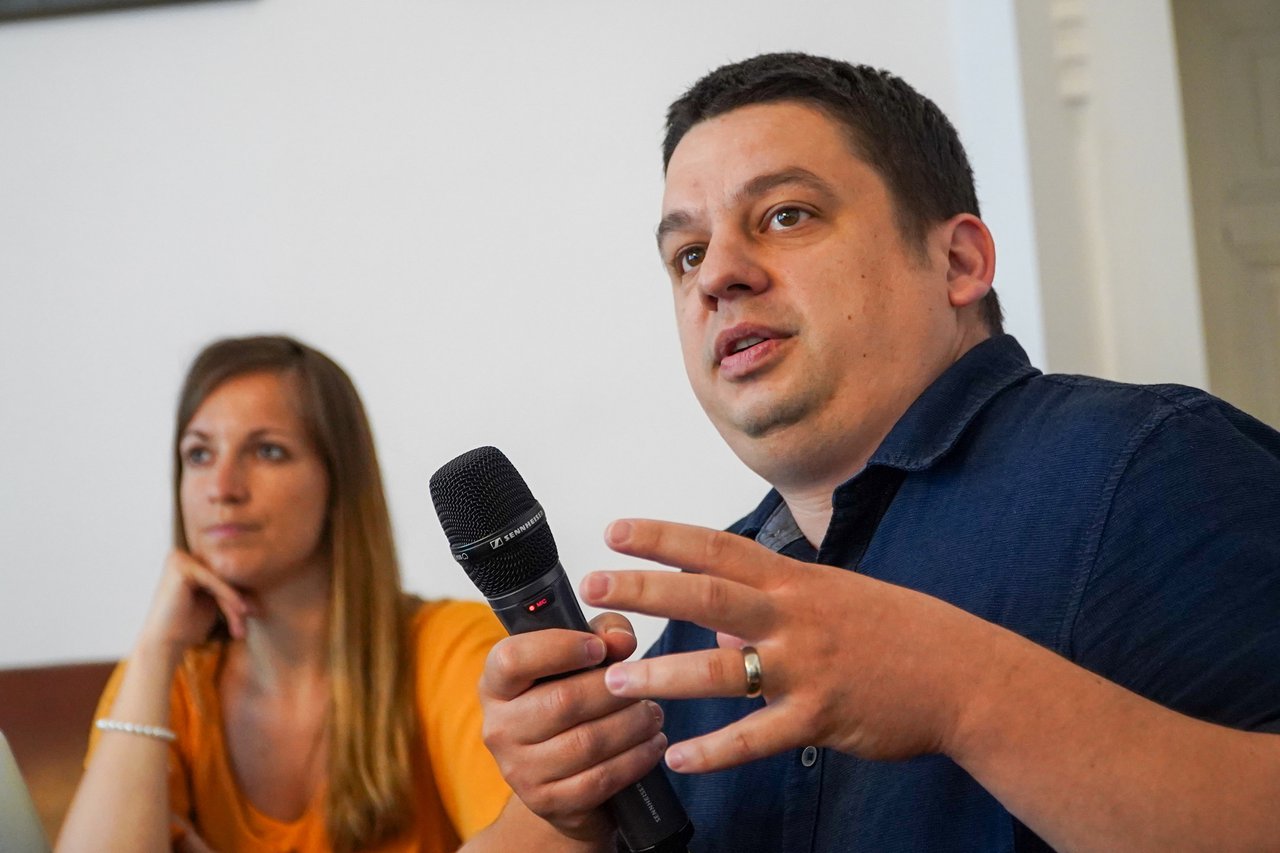
As a second strategic field in the Church Cooperation, HEKS has also supported the Refugee Integration Ministry of RCH, implemented by Kalunba Social Services Non-profit Ltd., in cooperation with other institutions and communities of the Church, with the special moral support and community background of the Scottish Mission (St. Columba's Scottish Church).
Head of Mission Dóra Kanizsai-Nagy presented the joint-efforts of the past four years, highlighting the difficulties of strategic planning and work in terms of the worsening political and social landscape, continuously changing legal framework and the total decline of financial resources, especially due to the withdrawal of grants from Asylum Migration Integration Fund (AMIF) in 2018. Kalunba was forced to take a step back: ongoing projects, such as the housing program, language courses, resettlement of Syrian refugees, university-level interpreter training, were cut, and staff was significantly reduced. This had a negative impact on the implementation of the HEKS project, as well. As part of the evaluation of the project, Dóra Kanizsai emphasized that the ownership and financial support of RCH, the flexibility and stability of the cooperation with HEKS, coupled with the moral and financial support of partner churches during the past years were crucial in maintaining the ministry at all.
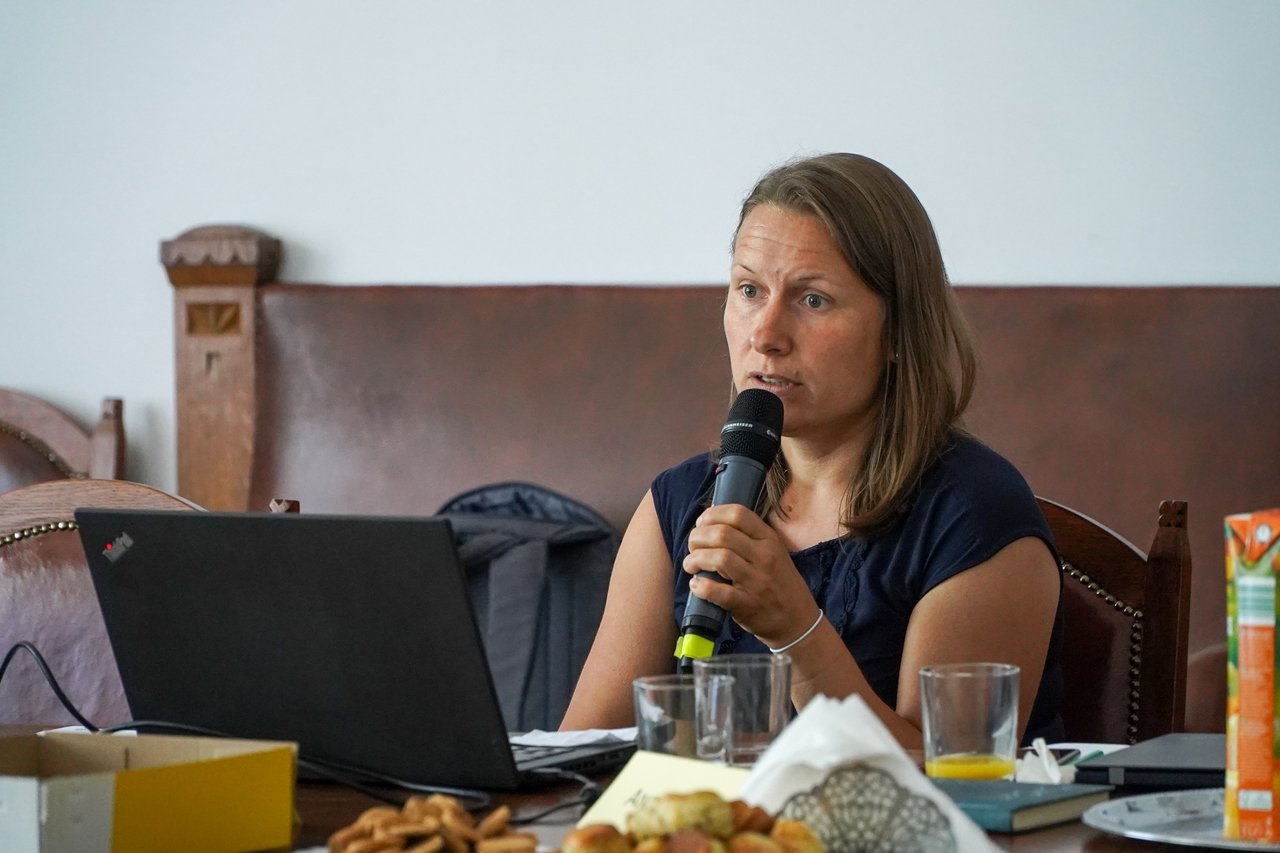
Renewed Commitment for Cooperation
Report about the previous strategizing workshop between HEKS and RCH
At the end of the morning session, both partners confirmed their willingness and commitment to continue working together in the two strategic field of the previous Church Cooperation.
In the afternoon session of the Workshop participants turned toward starting plan the future cooperation in the field of Roma inclusion, and work our new strategic objectives discussing questions of how inclusive school project can be made sustainable, how churches, schools and local communities can become even more inclusive, how can they help social inclusion, in general, and how other resources and partners can be included for the sake of sustainability?
The HEKS Country Program for the period 2021-2024 will be developed and project proposals drafted during summer, based on outcomes and joint insight of the workshop. This includes, for example, that the calling and commitment for mission among Roma shall be further strengthened among pastors, Roma and non-Roma must develop a shared responsibility for the peaceful coexistence of society and future generations.
Representative of both RCH and HEKS will be in ongoing exchange in the coming weeks in order to draft the new Country Program to be presented and approved toward the end of August.